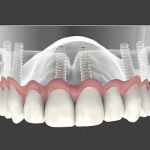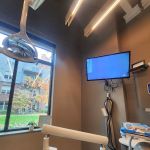- 1-Understanding-Gum-Inflammation-After-Dental-Work
- 2-Common-Causes-of-Post-Dental-Gum-Inflammation
- 3-Immediate-Care-Tips-to-Prevent-Inflammation
- 4-Long-Term-Oral-Hygiene-Practices-for-Healthy-Gums
- 5-Nutrition-and-Lifestyle-Factors
- 6-When-to-See-a-Dentist
1. Understanding Gum Inflammation After Dental Work
Gum inflammation following dental procedures is a common reaction as the tissue responds to treatment. Whether it’s a simple cleaning, root canal, or more invasive surgeries, your gums might become swollen, tender, or red. This inflammatory response is part of the healing process but, if unmanaged, can lead to discomfort or even infection.
Recognizing early signs of gum inflammation is essential. Patients often experience soreness around treated areas, mild bleeding during brushing, and localized swelling. Understanding the difference between normal healing inflammation and signs of complications is key to effective prevention and care.
2. Common Causes of Post-Dental Gum Inflammation
Several factors contribute to gum inflammation after dental work. Mechanical irritation from dental instruments, leftover debris, or sutures can provoke swelling. Inadequate oral hygiene post-procedure allows plaque buildup, aggravating gum tissue. Allergic reactions to dental materials, although rare, also play a role.
In some cases, pre-existing gum disease or systemic conditions like diabetes can increase inflammation risk. Identifying these causes helps tailor preventive measures and ensures that healing proceeds smoothly.
3. Immediate Care Tips to Prevent Inflammation
Right after dental work, prompt care is crucial. Rinsing gently with a saltwater solution reduces bacteria and soothes tissues. Avoiding vigorous brushing or flossing near the treated site prevents further irritation. Applying cold compresses can minimize swelling and ease pain.
Using prescribed medications such as anti-inflammatory gels or rinses supports healing. Patients should follow their dentist’s instructions closely and avoid smoking or consuming hard, spicy foods that could disrupt gum recovery.
4. Long-Term Oral Hygiene Practices for Healthy Gums
Maintaining good oral hygiene after the initial healing phase is vital to prevent recurring inflammation. Regular brushing with a soft-bristled toothbrush, flossing carefully, and using antimicrobial mouthwashes keep harmful bacteria in check. Routine dental check-ups enable early detection and treatment of any gum issues.
Investing in professional cleanings and considering tools like water flossers or interdental brushes can enhance plaque removal in sensitive areas, promoting sustained gum health.
5. Nutrition and Lifestyle Factors
Diet and lifestyle significantly impact gum healing and inflammation prevention. Nutrients like vitamin C, omega-3 fatty acids, and antioxidants strengthen the immune system and support tissue repair. Staying hydrated and limiting sugar intake reduce bacterial growth that causes gum disease.
Stress management and quitting smoking are equally important, as stress weakens immunity and smoking impairs blood flow to gums, hindering healing. Adopting a holistic approach benefits overall oral and general health.
6. When to See a Dentist
While mild gum inflammation is normal, persistent pain, swelling, pus discharge, or fever may indicate infection or complications requiring professional attention. Patients should seek dental care promptly if symptoms worsen or fail to improve within a week.
Early intervention can prevent more severe issues such as abscess formation or chronic periodontal disease. Your dentist at Dentistry Toothtruth is equipped to provide personalized care plans and advanced treatments to restore gum health efficiently.
By following these comprehensive guidelines on how to prevent gum inflammation after dental work, you can ensure smoother recovery and maintain a healthy smile. For expert advice and specialized products tailored to your needs, visit Dentistry Toothtruth and take proactive steps toward optimal oral care.







 Montclair Perio & Implant Specialists: Anne Hartnett, DDS0.0 (0 review)
Montclair Perio & Implant Specialists: Anne Hartnett, DDS0.0 (0 review) First Choice Dental- Madison East4.0 (289 review)
First Choice Dental- Madison East4.0 (289 review) Silicon Valley Dental4.0 (214 review)
Silicon Valley Dental4.0 (214 review) Michael Roessler D.D.S.4.0 (405 review)
Michael Roessler D.D.S.4.0 (405 review) Dental Playground3.0 (35 review)
Dental Playground3.0 (35 review) Hook Orthodontics5.0 (53 review)
Hook Orthodontics5.0 (53 review) The Importance of Oral Health Education During Pregnancy for a Healthy Pregnancy
The Importance of Oral Health Education During Pregnancy for a Healthy Pregnancy Best Tips for Brushing Your Teeth Properly for Healthy Gums: Essential Techniques for Oral Health
Best Tips for Brushing Your Teeth Properly for Healthy Gums: Essential Techniques for Oral Health Why Skipping Dental Checkups Can Lead to Bigger Oral Health Problems
Why Skipping Dental Checkups Can Lead to Bigger Oral Health Problems Advantages of Porcelain Dental Restorations
Advantages of Porcelain Dental Restorations How Can Diabetes Cause Tooth and Gum Problems? Preventing and Managing Oral Health Issues
How Can Diabetes Cause Tooth and Gum Problems? Preventing and Managing Oral Health Issues Healthy Habits for Promoting Good Oral Health and Hygiene: Tips for a Healthy Smile
Healthy Habits for Promoting Good Oral Health and Hygiene: Tips for a Healthy Smile